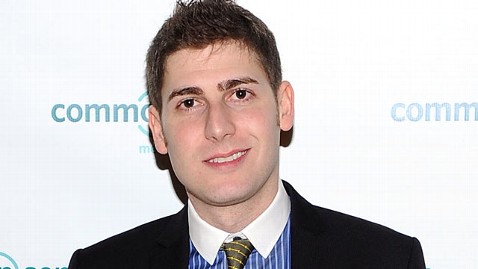Facebook IPO: Eduardo Saverin Defends Citizenship Move

(image credit: Jason Kempin/Getty Images)
Eduardo Saverin, a co-founder of Facebook and soon-to-be IPO multi-billionaire, defended relinquishing his U.S. citizenship, which led lawmakers to announce the Ex-Patriot Act this morning, saying he "will pay hundreds of millions of dollars in taxes" to the U.S.
"My decision to expatriate was based solely on my interest in working and living in Singapore, where I have been since 2009," Saverin, 30, said in a statement released to ABC News. "I am obligated to and will pay hundreds of millions of dollars in taxes to the United States government. I have paid and will continue to pay any taxes due on everything I earned while a U.S. citizen."
Saverin, who helped Mark Zuckerberg develop the social network as Harvard students, is expected to save millions of dollars by not paying capital gains taxes on his shares of Facebook, which is expected to have the largest technology IPO ever on Friday.
His stake in the company is estimated to be worth over $3 billion of Facebook once the company goes public on Friday.
Last week, reports revealed Saverin filed in September 2011 to give up his citizenship which became official in September, before Facebook announced its plans in February this year.
"It is unfortunate that my personal choice has led to a public debate, based not on the facts, but entirely on speculation and misinformation," he said in the statement.
Saverin paid a standard "exit" tax, which included approximately 15 percent of the pre-IPO value of his shares. Saverin is likely saving millions of dollars because he will not pay capital gains taxes while he lives in Singapore.
"As a native of Brazil who immigrated to the United States, I am very grateful to the U.S. for everything it has given me," Saverin said. "In 2004, I invested my life's savings into a start-up company that initially was run out of a college dorm room. Since then the company has expanded dramatically, has created thousands of jobs in the United States and elsewhere, and spawned countless new companies across the United States and other countries."
Sen. Chuck Schumer, D-N.Y., said Sen. Bob Casey, D-Pa., have called Saverin's move an "outrage." Their proposed legislation calls for re-imposing a 30 percent tax on capital gains on expatriates like Saverin who take up residence in a foreign country.
Last year 1,700 people renounced their U.S. citizenship.
"I will continue to invest in U.S. businesses and start-ups, and believe and hope that those investments will create many new jobs in the U.S. and globally," Saverin said. "I also hope that these investments will create opportunities for many other individuals to start companies and benefit society."
Ben Mezrich, author of "The Accidental Billionaires: The Founding of Facebook," defended Saverin. Mezrich, who interviewed Saverin for his book which was adapted into the film, "The Social Network," said saving money was likely a factor for his repatriation, but not the entire reason.
"To be fair, Eduardo wasn't born in the U.S. and has really lived internationally for most of his life," Mezrich said. "He will save some money on taxes, and especially on estate taxes down the line, so I'm sure that's a factor, but he probably made the decision because he sees himself as an international businessman."
ABC News' Sunlen Miller and Lauren Pearle contributed to this report.